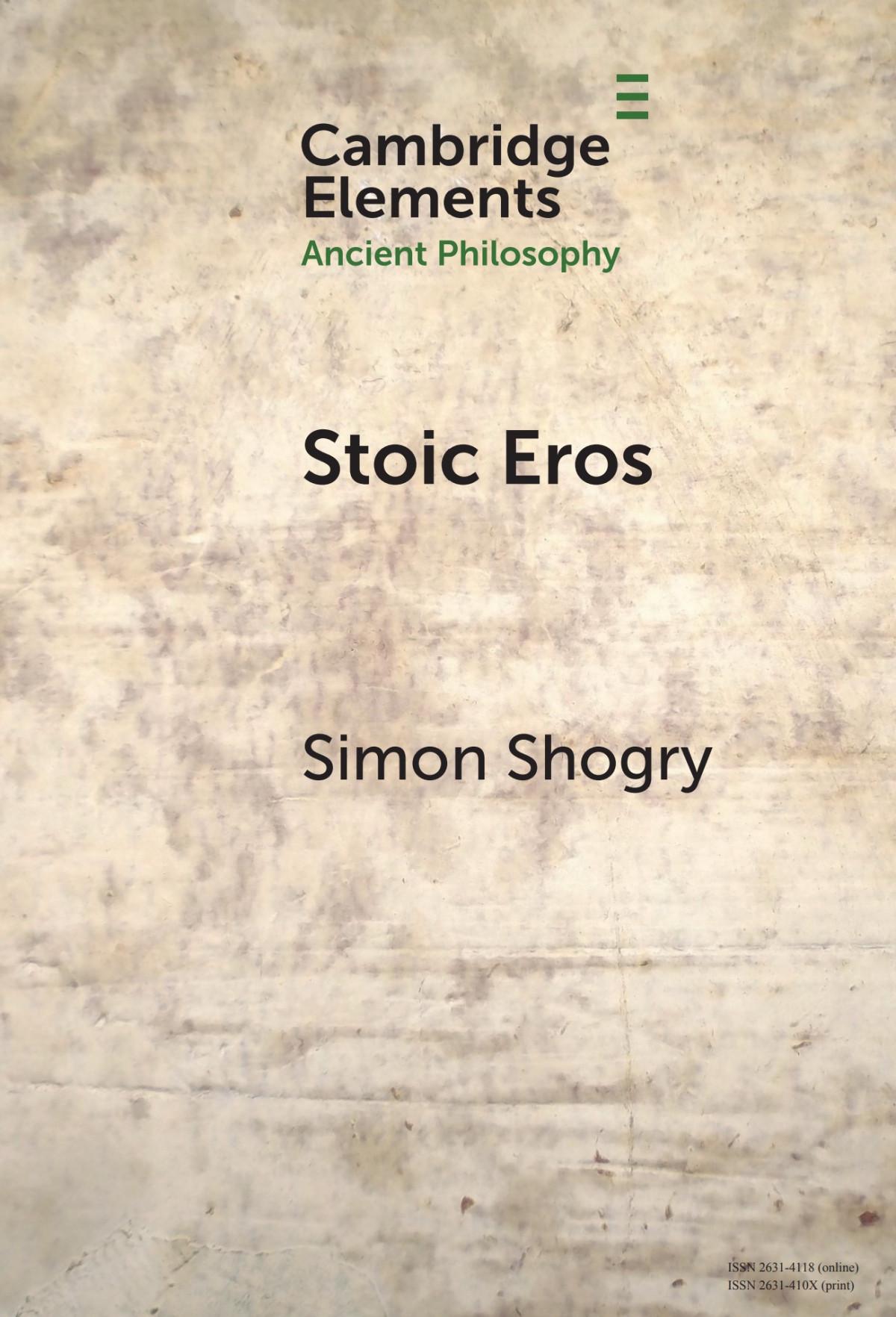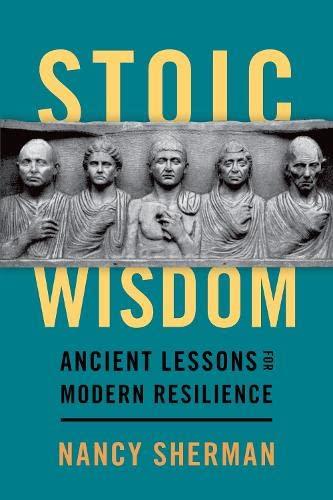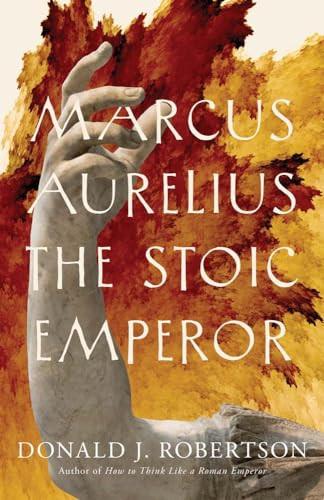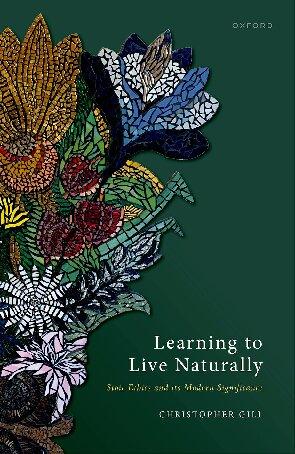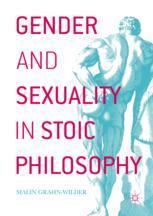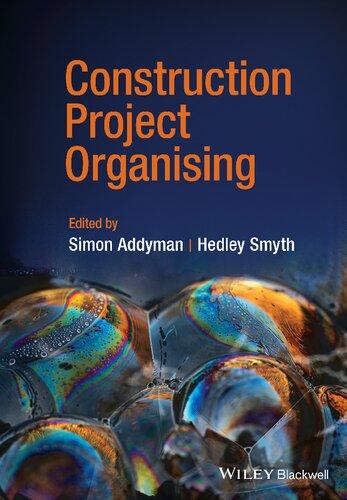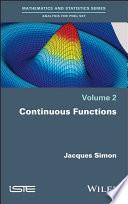STOICEROS
SimonShogry
BrasenoseCollege,UniversityofOxford
ShaftesburyRoad,CambridgeCB28EA,UnitedKingdom OneLibertyPlaza,20thFloor,NewYork,NY10006,USA 477WilliamstownRoad,PortMelbourne,VIC3207,Australia
314–321,3rdFloor,Plot3,SplendorForum,JasolaDistrictCentre, NewDelhi – 110025,India
103PenangRoad,#05–06/07,VisioncrestCommercial,Singapore238467
CambridgeUniversityPressispartofCambridgeUniversityPress&Assessment, adepartmentoftheUniversityofCambridge.
WesharetheUniversity’smissiontocontributetosocietythroughthepursuitof education,learningandresearchatthehighestinternationallevelsofexcellence.
www.cambridge.org Informationonthistitle: www.cambridge.org/9781009500814
DOI: 10.1017/9781009039277
©SimonShogry2024
Thispublicationisincopyright.Subjecttostatutoryexceptionandtotheprovisions ofrelevantcollectivelicensingagreements,noreproductionofanypartmaytake placewithoutthewrittenpermissionofCambridgeUniversityPress&Assessment. Whencitingthiswork,pleaseincludeareferencetotheDOI 10.1017/9781009039277
Firstpublished2024
AcataloguerecordforthispublicationisavailablefromtheBritishLibrary.
ISBN978-1-009-50081-4Hardback
ISBN978-1-009-01771-8Paperback
ISSN2631-4118(online)
ISSN2631-410X(print)
CambridgeUniversityPress&Assessmenthasnoresponsibilityforthepersistence oraccuracyofURLsforexternalorthird-partyinternetwebsitesreferredtointhis publicationanddoesnotguaranteethatanycontentonsuchwebsitesis,orwill remain,accurateorappropriate.
ElementsinAncientPhilosophy
DOI:10.1017/9781009039277 Firstpublishedonline:January2024
SimonShogry BrasenoseCollege,UniversityofOxford
Authorforcorrespondence: SimonShogry, Simon.Shogry@bnc.ox.ac.uk
Abstract: TheStoicsdistinguishtwoformsoferos.Inviciousagents erosisindeedapassionandthusbornoutofadefectiverational judgmentaboutwhatisneededforhappiness.Butthereisalso apositiveformoferoticlove,practicedbytheSageonthebasisof knowledge,whichaimstoreproducehisvirtuousconditioninothers.In thisElement,theauthorshowshowtheStoics’ widertheoretical commitmentsinethics,epistemology,aesthetics,andpsychology supporttheirduplexaccountoferos.Theyalsoconsidertheinfluence ofPlato’sSymposiumontheStoicaccount,arguingforhitherto unrecognizedlinkswithSocraticmoralpsychology.TheElement concludeswithanassessmentofhowtheStoiceroticidealfaresin relationtoourintuitionsaboutthenon-egoisticandparticularized natureoflove.
Keywords: PlatoSymposium,Stoiclove,Stoicemotion,Stoicmoral psychology,eroticexpertise
©SimonShogry2024
ISBNs:9781009500814(HB),9781009017718(PB),9781009039277(OC)
ISSNs:2631-4118(online),2631-410X(print)
1Introduction
“Stoiceros”?Isn’tthatacontradictioninterms?TheancientStoicsarenotoriousfortheirclaimthattheidealhumanlifeisfreeofpassion.Sowhenitcomes toarguablythemostpassionateemotionofall,wemightexpectthemtotake auniformlydimview.Justlikeanger,fear,grief,andtheotherpassions censuredbyStoictheory,eroticlovewouldseemtohavenoplaceinthebest humanlife.1
Mattersarenotsosimple,however.TheStoicsidentifyaninfamouslyerotic symposiastastheirphilosophicalmodel – Socrates – andseethemselvesas workingoutwithsystematicrigorthetheoreticaloutlookheintroduced.For Socrates, erōs isbynomeansalientothegoodlifebutratherintimatelybound upwiththeacquisitionofvirtueandhappiness.Underscoringthisoptimistic view,Socrateshimselfclaimstopossesseroticexpertise(Plato, Symposium, 177d7–8; Lysis,204b7–c2).
OnegoalofthisElementistoshowthattheStoicsself-consciouslyembrace thisSocraticprecedentinformulatingtheiraccountof erōs.FollowingSocrates, theStoicsmakeroomintheirethicaltheoryforapositiveformoferoticlove. Theidealhumanagent – thewisepersonorSage,astheStoicscallher – isalso alover:hereroticexpertiseisanaspectoftheknowledgeinwhichthevirtues consist,andhereroticeffortsseektoimprovethepersonwhomsheloves.2 The Sage’s erōs isnotpathological,then,butasourceofbenefitandpartofahappy, well-livedhumanlife.ButjustasSocratesrecognizesmultipleexpressionsof erōs,onlyoneofwhichreflectsproperphilosophicalunderstandingandvirtue, theStoicsdistinguishagoodformoferoticlove,practicedbytheSageonthe basisofherknowledge,fromablameworthyandpassionatelovethat flows fromignorance.TheresultisacomplexpictureaimingtovindicatetheSocratic insightthat erōs cancooperatewithvirtue – andthepowerfulintuitionthat eroticlovecanbepartofanobjectively flourishinglife – whilealsodoing justicetotheprecariousandmiserablenatureof erōs groundedinvice.
Stoicphilosophyissystematic,andsotobetterappreciatetheiraccountof eroticlove – inparticular,itsduplexstructure – weneedtocontextualizeit withinbroaderstrandsofStoicthought.TheStoicspositvirtueasthesolegood and,assuch,theonethingthatgenuinelybenefitsusandbestowshappiness (eudaimonia);analogously,viceisthesolebadand,assuch,theonethingthat genuinelyharmsusandrenderslifemiserable.Furthermore,theStoicsoffer
1 Inwhatfollows,ItranslatetheGreekterm erōs as “love” or “eroticlove.”
2 AsIdiscussin Section2.2,theStoicsmaintainthat “thevirtueofmenandwomenisthesame” (DL7.175),andtheystrenuouslyrejecttheideathatvirtueisopentomenalone.Forthisreason, IusebothmaleandfemalepronounstorefertotheSage.
apurelyepistemicanalysisofvirtue andvice,accordingtowhichvirtue consistsinknowledge,andvicejustisignorance.Thevalueof erō s for humanbeingsthusdependsonitsrelationshipwiththesefundamentalgood andbadthings – virtueandknowledgeontheonehandandviceandignorance ontheother.
Thisrelationshipisthetopicof Section2.HerewewillseethattheStoics distinguishthetwobasicformsof erōs accordingtothemoralandepistemic conditionofthelover.TheSage’s erōs isgoodbecauseitisinseparablefrom andguidedbyhervirtueandknowledge,whereasviceandignorancecontrolthe non-Sage’slove(Section2.1).TheStoicsjustifythisaccountwiththeirinsistencethat erōs isineverycasea rational activity,inthesensethatitisalways aproductofthelover ’srationalmindandresponsivetoherjudgmentsabout whatisnecessaryforhappiness.Thesevalue-judgmentsamounttoignorancein thenon-Sage,sincetheyareunstableandoftenfalse,buttoknowledgeinthe Sage.
Hereonemightobjectthatthereisnothingrationalabouteroticlove:surelyit isratherablinddriveissuingfromapartofusthatlacksreason, floatingfreeof ourconsideredjudgmentsabouthappinessandpotentiallyopposingthem.This intuition,however,is flatlydeniedbytheStoics.Ingeneraltheyrejectthe existenceofnon-rationalpartsofthesoul,whichmotivateindependentlyofthe agent’scognitionofthegood,ofthekindfoundinthetripartitetheoryofPlato’s Republic and Phaedrus.Instead,adoptingapositiontheyconsideroriginally Socratic,theStoicsdefendamonisticpsychologicaltheory,onwhichthe maturehumanmindisrationalthroughandthrough.Consequently,every impulseforactionisanexpressionofreason,accordingtotheStoics – reason perfectedbyvirtue,inthecaseoftheSage,orreasoncorruptedbyvice,inthe caseofthenon-Sage.
Thispsychologicaltheoryhassomesurprisingresults.First,passionssuchas anger,fear,andgriefspringfromdefectivereasoningandrestonfaultycognitionofwhatisgoodandbadfortheagent.Thesameholdsofthenon-Sage’s erōs,whichtheStoicsclassifyasapassion(Section2.3).Second,therational causesofourbehavioraresometimesphenomenologicallyopaquetous:erotic lovemaypresentitselfasanunbidden,inexplicableforce,butinprincipleitcan betracedbacktothelover ’sviewsaboutthegood(orsotheStoicsargue). Third,thereisnosuchthingassimultaneousmentalconflict,thatis,two impulsesforcontrarycoursesofactionatthesametime.Rather,aswewill seein Section2.3.1,whenweconsiderMedeaandThrasonides – twoancient archetypesofconflictedlovers – theStoicsprovideanalternativeanalysis.
IftheSage’s erōs isnotapassion,whatisit?Andhowisitconstitutively relatedtoherknowledgeandvirtue?Aswewillseein Section2.2,theStoics
definetheSage’sloveas “anefforttogainfriendship.” Suchaneffortis characteristicoftheSage,sincetogainfriendship(philia)withthebeloved theSagemustreproduceherownknowledgeandvirtueinhim.3 Thisisbecause theStoicsrestrictfriendshiptothewise,andtheSage’sbelovedisnotyetinthis perfectedstate.TheSage’s erōs isthusessentiallypedagogical – andasymmetricalinthemoralandepistemicstandingoftheloverandbeloved.Thegoalof wiseloveistodevelopthetalentsofsomeonepresentlyvicioustotheirfull potential,sothathehimselfbecomeshappy,virtuous,andafriendtotheSage. Itisacommonplaceinancientthoughtthat erōs isaresponsetobeauty.The Sage’s erōs isnoexception,asitismoreexpansivelydefinedas “aneffortto gainfriendship resultingfromthebeautythathasbeenmadetoappear” (emphasisadded). Section3 investigateswhat,exactly,thebeautyofthe Sage’sbelovedamountsto(Section3.1),andhowitismadetoappearin themindoftheSage(Section3.2).Icontendthatthisbeautyisafeatureof thebeloved’ssoul,groundedinhisheightenedpotentialtobecomevirtuous. Thischaractertrait – talent-beauty,asIwillcallit – isdirectlyperceivedbythe Sageasaconsequenceofherpossessionoferoticexpertise.Ininterpretingthe Stoictheorythisway,wecanintegratetheirrecognitionoferoticexpertise – on whichthe firsttwoleadersoftheschool,ZenoandCleanthes,eachcomposed afulltreatise – withtheirdoctrineof “expertimpressions.” Accordingtothis doctrine,expertiseenhancestheprecisionanddetailoftheimpressions(or appearances, phantasiai)theexpertforms.Sowhenfacedwiththesame stimulus – forinstance,aBeethovensymphony – theexpertmusicianhears moreinthepiecethantheamateur.Analogously,Isuggest,featuresofcharacter lostontheeroticamateuraremadetoappearinthemindoftheSagewhen asuitablebelovedpresentshimself – including,crucially,histalent-beauty.
In Section4,IexaminethewaysinwhichtheStoictheoryof erōs canbe understoodasaresponseto,anddevelopmentof,Socraticideasonloveasthey arepresentedinPlato’s Symposium.IcontendthatbothSocratesandtheStoics understand erōs asarationalstate,admittingofexpertise,whichmotivatesthe lovertopursuewhatshetakestobegood,beautiful,andproductiveofhappiness(Section4.1).FortheStoics,thisSocraticinsightoffersthecorrectstarting pointforanysatisfactorytreatmentof erōs andisseenasdetachablefromthe metaphysicsofFormstheyregardasproblematic.HereIdepartfromthe scholarlyconsensusthatidentifiesPausanias,notSocrates,asthespeakerin the Symposium whomostdirectlyinfluencestheStoicaccount(Section4.2).
3 Aswewillalsoseein Section2.2,theSage’sloveisneitherhetero-norhomoerotic,andsoin whatfollowsIalternatebetweenusingmaleandfemalepronounstorefertotheSage’sbeloved. Notethat “friendship” willbemystandardtranslationof philia,incontrastto “love” or “erotic love” for erōs.
Thisstandardinterpretationoverlooksthedeeptheoreticalaffinitiesbetween StoicandSocraticmoralpsychologyanddownplaystheStoics’ principled criticismoftraditionalpederasticrelationships,ofthekindchampioned(with slightmodifications)byPausanias.
Finally,tworemarksonthescopeofmyinquiryinthisElement.First,Iwill saynothingaboutStoicviewsonmarriage,sincetheStoicstypicallyinvestigate thevalueandappropriatenessofmarriageontheassumptionthatspousesought tofeelgoodwillandfriendshipforeachotherbutnot erōs. 4 Second,my discussionofsexwillbelimitedtocontextswhereitisclearlyrelatedto erōs – forexample,astheproductofaneroticimpulse(Sections2.2.1, 2.3, 2.4).Ithereforesetasidequestionsabouttheroleofsexwithinmarriageand Stoicjustificationsforparenthood,sincetheStoicstendtoaddressthesetopics separatelyfromtheirtreatmentof erōs.Wemustavoidthetemptation,then,to construetheStoicaccountof erōs asageneraltheoryofsexuality – andstillless asageneraltheoryofinterpersonalattractionandaffection.In Section5, IassesshowtheStoicaccountofwise erōs faresinrelationtoourintuitions aboutthenon-egoisticandparticularizedcharacteroflove,concludingthatit preservestheformerbutstruggleswiththelatter:althoughitisthebeloved’s good,notherown,thatmotivatestheSagetoenterintoaneroticrelationship, wemightworrythatsheplacestoolittlevalueontheconcreteindividualityof thebeloved,aboveandbeyondhispossessionoftalent-beauty.
2TheTwoBasicFormsof Erōs
Inthissection,IpresenttheStoicdistinctionbetweenthetwobasicformsof erōs,onevirtuousandtheothervicious.Atitsworst,eroticloveisapassionand soanerraticanddisobedientimpulsebornoutofunstableandfalsevaluejudgments.Butatitsbest,eroticloveisabeneficialactivitythat flowsfromthe wiseperson’svirtueandknowledge,helpingthenotyetwisebelovedbecome good.Thewisepersonwillfallinlove,theStoicsargue,butthisvirtuousform of erōs differsfromthepassionateandignorantkindthatafflictsthevicious.In Section2.1,Ilayouttheethical,psychological,andepistemologicalthesesthat leadtheStoicstodrawthisdistinction.In Section2.2,IconsidertheSage’s erōs inparticular,whichtheStoicsdefineas “anefforttogainfriendship,” before examiningin Section2.2.1 whethersexhasanyroleinthiseffort.In Section2.3, IturntotheStoicaccountof viciouserōs,contextualizingitwithintheirmore generaltheoryofthepassions;andin Section2.3.1,Ianalyzethecharacterof
4 Musonius’ claimtothecontrary(fr.14,75.12–14,ed.Hense)ispresentedasexceptionaland counterintuitive.Seediscussionin Reydams-Schils2005,145–59,and Gill2013,151–3.Seealso Epictetus’ commentsontheunusualmarriageofCratesandHipparchia(Diss. 3.22.76)and discussionin Inwood1997,68–9.
Thrasonides,theliterarymodelusedbytheStoicstoillustratehowvicious loversarecapableofreform.Finally,in Section2.4,Iexplainwhatunifiesthe twobasickindsof erōs and,withthisaccountinhand,addresssomescholarly disputesconcerningthedifferentwaysthat erōs ischaracterizedinoursources.
2.1Virtue,Vice,andtheTwoFormsof
Erōs
OnecentralcontentionofthisElementisthattheStoicaccountof erōs cannot befullyunderstoodinisolationfromtheschool’swiderethical,psychological, andepistemologicaltheory.Wethus findhereacasestudyofthecelebrated systematicityofStoicphilosophy.Inthissection,IshowhowStoicthinkingon virtueandvicesupportstheirdistinctionbetweentwoformsof erōs.
OneofourmostinformativereportsonStoic erōs isprefacedwiththe followingremark:
T1:And[theStoics]saythatthewisemandoeseverything[hedoes]onthe basisofallthevirtues;foreveryactionofhisisperfect,andsoisbereftof noneofthevirtues.(Stob.2.65.12–14,Wachsmuth’stext)
BeforewediscussitsrelevancefortheStoicaccountof er ō s ,weshould pausetonoticehowstrongtheclaiminT1is.Itisnotmerelytheclaimof the “ unityofthevirtues, ” traditionallyassociatedwithSocratesinthe Protagoras ,thattheagentwhopossessesonevirtue(e.g.courage)necessarilypossessesalltheotherstoo(e.g.prudence,justice,moderation).Tobe sure,theStoicsaccepttheunityofthev irtues,onbroadlySocraticgrounds, sincetheyholdthatcourage,prudence,justice,andmoderationeachconsist inknowledge – andindeedinknowledgeofthe sametheorems – sothatone couldnotpossesstheknowledgethatiscouragewithoutalsopossessingthe knowledgethatisprudence(orjusticeo rmoderation).Forthisreason,the Stoicssaythesevirtuesare “ inseparable ” fromoneanother(Stob.2.63.6 – 8) and “ mutuallyimply ” oneanother(DL7.125). 5 However,theclaiminT1is that,eachtimetheSageacts, all thevirtuesareactive.Soinstanding fi rmon thebattle fi eldordistributingmoneytotheneedy,nolessthanintaking awalkafterdinner,theSagejointlyexercisescourage,justice,prudence, moderation,andalltheothervirtuestoo.Noactionofhisis “ bereft ” of asinglevirtue.
ThisstrongclaimIwillcallthe cooperationofthevirtues,and,onthefaceof it,itseemsquiteimplausible.Withoutfurtherelucidation,itishardtoseehow
5 Strictlyspeaking,notallvirtuesconsistinknowledge,butthenon-epistemicvirtuesaresaidto “supervene” ontheepistemicones(Stob.2.62.15–20)andhencewillbeinseparablefromthem (DL7.90).ThroughoutthisElement,Isetasidethiscomplicationanduse “virtue” tomean “virtue consistinginknowledge.”
theknowledgethatconstitutescourage,forinstance – theknowledgeof “whatis terrifying,notterrifying,andneither” (Stob.2.59.10–11)pertainingtomatters ofendurance(Stob.2.60.14) – couldbeactiveintheSage’sdistributingmoney totheneedy,oreveninphysicalexercise.Whymust all thevirtuesbeactivein suchcases,ratherthanjustonevirtueornoneatall?
T2suggestsonepotentiallineofresponse.TheStoics,welearn,arecommittedtotheunityandcooperationofthevirtues,buttheyalsomaintainthatthe virtues
T2:differfromoneanotherintheirmainconcerns(kephalaia).Prudence’s mainconcernsare,inthe firstinstance(proēgoumenōs),totheorizeaboutand putintoactionwhatistobedone,butonthesecondlevel(katadeton deuteronlogon)totheorizealsoaboutwhatdistributionsoneoughtto make,whatchoicesoneoughttomake,andwhatoneoughttoendure,for thesakeofputtingunerringlyintoactionwhatistobedone.Thespecialmain concernofmoderationis,inthe firstinstance,tomakeone’simpulsessteady andtotheorizeaboutthem,butonthesecondleveltotheorizeaboutthe mattersthatcomeundertheothervirtues,inordertoconductoneselfunerringlyinone’simpulses.Similarly,couragetheorizesinthe firstinstanceabout everythingoneoughttoendure,butatthesecondlevelaboutthemattersthat comeundertheothers,andjustice,inthe firstinstance,investigateseach person’sdue,butonthesecondleveltheremainingthingstoo.Forallthe virtueslooktotheconcernsofthemall(pasasgartasaretastapasōnblepein) andtothemattersthatarerangedundereachother.(Stob.2.63.10–25,trans. Coopermodified,Wachsmuth’stext)
Itisnotimmediatelyclearwhatitmeansforasinglevirtue(e.g.courage)to theorizeaboutonegroupoftheorems “inthe firstinstance” (proēgoumenōs)and anothergroup “onthesecondlevel” (kata ... tondeuteronlogon).However, followingrecentscholarship,wecansaythatalthoughallthevirtuesconsistin knowledgeofthesametheorems,eachvirtuehasitsown “mainconcern” or special “perspective” onthosetheorems,suchthatitgivesprimaryattentionto asubsetofthem.6 Thuscouragediffersfromtheothervirtuesinhaving aprivilegedtheoreticalawarenessof “everythingoneoughttoendure.” Butin ordertocomprehensivelygraspthesetheoremsrelatedtoendurance,courage cannotfailto “lookto” thetheoremsgivenprimaryattentionbytheother virtues,andsoitknowsthemtoo,albeit “onthesecondlevel.” Thisisbecause, fortheStoics,neitherthespecialperspectiveofjustice,concerning “each person’sdue” andwhatshouldbedistributedtowhom,northemainconcerns ofprudence,relatingto “whatistobedone,” areeverfullyseparablefromor
6 See Cooper1999,96–104, LongandSedley1987,vol.1,384,and Schofield1984,93–4.Long andSedleytranslate kephalaia inT2as “perspectives,” whereCoopergives “mainconcerns”; Schofieldhas “chiefprovinces.”
irrelevanttodeterminingwhichthingsoughttobeenduredandwhy.The principlesofcourage,whichmake x thethingtoendureinagivenscenario, areconsistentwithandinformedbytheprinciplesofprudence,whichmake enduring x thethingtodo,andsoonwiththeothervirtues: “thethingstobe donearealsotobechosen,tobeendured,tobeheldto,andtobedistributed” (DL7.126).Itisimpossible,then,thatprudencewouldrecommend φ-ingand couragenot-φ-ing.Whoeveractsonthebasisofonevirtuenecessarilyactson thebasisofthemall,givenhowtheirmainconcernsareinterrelated.
TheStoicsdefendthestrongthesisofthecooperationofthevirtues,then, becausetheythinkthateachvirtuecontributessomethingfromitsprimaryareaof concerntotheproductionofeachvirtuousaction.ThusSenecaspeaksofthe “inseparableentourage” (individuuscomitatus)ofthevirtuesandclaimsthat everyactionperformedbytheSageis “theworkofonesinglevirtuebutarisesout ofthejudgmentofthewholecouncil” (unavirtusfacit,sedexconsiliisententia: Ep. 67.10).SowhentheSagedonatesmoneytotheneedy,sheisactingjustly,as shereliesonherknowledgeof “whatdistributionsoneoughttomake” (e.g.that thiskindofpersonshouldbehelpedbeforethatperson).Butherjustactioninthis casereliesontheprimaryperspectivesofalltheothervirtuesaswell:forinstance, howtoendurecriticismsfromothers,shouldtheyarise,andsoon.Indeed,the Stoicsmaintainthatevensomethingashumdrumastakingawalkafterdinner, whenperformedbytheSage,reflectstheglobalknowledgeinwhichthevirtues consist.7 Whypostprandialexerciseisappropriateinthisinstance,inwhatwayit shouldbeperformed,inpreferencetowhichotherpracticalgoals,etc.,wouldbe answeredbythedifferentvirtuesandtheirdifferentperspectivesonthecommon stockoftheorems.TheactionscontrolledandguidedbytheSage’svirtuesare thusconsiderablywiderinscopethanthosewhichphilosopherstodaywould classifyasmorallyrightorwrong.
ButtowhatdegreeistheSageawareofeachoftheindividualvirtues ’ epistemiccontributionswhenshedecidestoact?Inselectingthevirtuous action,doessheconsciouslyattendtoeachvirtue ’sperspectiveonwhythat actioniscorrect?Or,rather,isatlea stpartoftheholisticknowledgeinwhich thevirtuesconsistlatentandnotconsciouslyentertained?Sincethesubject matterofthevirtuesrangeswidely,its eemsthelatterviewismorecharitable: consciouslyattendingtotheepistemiccontributionsofallthevirtuesatonce wouldseemtorequireasuperhumanfeatofcognition,andtheSageisheld outasademanding,butstillhumanlyattainable,ideal.YettheStoicsalso insistthatthevirtuesare “ alwayspresent ” intheSage “ ateverymoment ”
7 Thuswe find “prudentwalking” (phronimōsperipatein)listedasoneexampleofavirtuousaction (kathorthōma)atStob.2.96.20–22.SeealsoSeneca, Ep. 66.5,36.
(Stob.2.68.24 – 69.3;cf.DL7.83),sothateveryactionsheperformsisperfect, “ containingalltherightmeasures ” (Stob.2.93.14 – 16;Cicero, Fin. 3.24).
Inmyview,thesecommitmentsdonotsitwellwiththepossibilitythatany singlevirtueisfullylatentinthepsychologicallead-uptoavirtuousaction. Theypointinstead,Ithink,toanimportantStoicprincipleabouttheworkingsof therationalmindthatwewillreturntoofteninourdiscussionof erōs,which Iwillcallthe opacityprinciple.
OpacityPrinciple:thecognitivecausesoftherationalmind’sactivitiesare sometimesphenomenologicallyopaquetotheagent.
Whenappliedtothecooperationofthevirtues,theopacityprincipleallowsthe Stoicstosaythat,althougheveryvirtueis causallyactive inproducingeach virtuousaction – andsonovirtueislatentinthissense – someoftheindividual virtues’ epistemiccontributionsmaynotbephenomenologicallytransparentto thevirtuousagentatthetimesheacts,eveniftheyarepotentiallyrecoveredand madeexplicitlateron.Tobesure,theSagehasinternalizedtheperspectiveof eachvirtue,andeachvirtueiscausallyactiveinsofarasitleadstheSage –explicitlyorimplicitly – toselectthevirtuousactionandtoappreciatewhyitis correct.However,somecasesmaynotrequiretheSagetoconsciouslyattendto (e.g.)themoderatedimensionsofherjustaction,sincethecircumstancesin whichitisselectedbringonlyjustice’smainconcernstotheforefrontofher attention.
ThisaccountofthepsychologyofvirtueprovidesthecontextfortheStoic accountof erōs,inparticularfortheirclaimthatthereisan eroticvirtue. ImmediatelyfollowingonfromT1,oursourcecontinues:
T3:Consistentlywiththis[i.e.withtheclaiminT1],theyalsoholdthatthe onewithintelligence(honounechōn)8 actsinthemannerofadialectician, asymposiast,andalover(erōtikōs).But “lover” (erōtikos)issaidintwo ways:oneloverhasthisqualitybecauseofvirtue,sinceheisexcellent (spoudaios),whereasanotherlovergetsthisqualityfromvice,andiscensuredasakindoferoticmaniac(erōtomanē tina) Theycharacterizethe virtuesexercisedatasymposiumsimilarlytothosepertainingtolove:theone beingknowledgewhichisconcernedwithwhatisappropriateat asymposium,namely,ofhowoneshouldrunsymposiaandhowoneshould drinkatthem;andtheother[sc.eroticvirtue]isknowledgeofhowtohuntfor talentedyoungpeople,whichturnsthemtovirtue – andingeneralknowledge oflovingwell.Thatiswhytheysaythattheintelligentpersonwillbealover. (Stob.2.65.15–66.9,trans.InwoodandGersonmodified)
8
T3seekstojustifytheStoicthesisthattheSage(the “intelligent” or “excellent” person)engagesin erōs,inawaythatisconsistentwiththeStoiccommitmentto theunityandcooperationofthevirtuesinT1.9 Thestrategyistopositanerotic virtue.Thisimpliesthatthereisaspecificallyeroticperspectiveonthetheorems knownincommonbytheothervirtues.Althoughthespecialperspectiveor concernoferoticvirtueisnotidentifiedhere,asitisforcourage,moderation, andsooninT2,wemayinferthateroticvirtuetheorizesinthe firstinstance abouthowtohelptalentedyoungpeoplebecomevirtuous,asthisisthe knowledgeitisassociatedwithinT3.10 TheStoicsarethereforeproposing thatinordertoeffectivelytheorizeaboutthistopic – andmoregenerallyabout “lovingwell”– eroticvirtuemust “lookto” themainconcernsoftheother virtues,fromwhichitisinseparable.
Thisaccountoferoticvirtueishighlyabstract.Evenso,itenablesustodraw somepreliminaryconclusionsabouttheSage’seroticactivities,whichwillbe corroboratedinmoredetailaswegoon.First,theSage’s erōs willbesensitive toand flowfromthecomprehensiveknowledgeinwhichthevirtuesconsist, withtheresultthatwiselovewilloperateundercertainconstraints:itwillnever beunjusttothebelovedortoanyoneelse,neverimpious,cowardly,orhubristic. Second,theSage’s erōs hasapedagogicalaim:tomakethetalentedbeloved virtuous.Third,giventhecooperationofthevirtues,eroticvirtuewillmakean epistemiccontributiontoalltheSage’sactions,sothathewillnevermissouton anopportunitytodevelopthetalentsofayoungpersonandturnthemtovirtue, shouldhemeetwithsomeonewhowouldstandtobenefitfromhiseroticefforts. Fourth,incircumstanceswhereeroticmattersareespeciallysalienttothe Sage – forinstance,intheancientcontext,asymposium – eroticvirtuewill cooperatewithothervirtuesinaccomplishingitspedagogicalgoal.Soifthe Sageencountersatalentedyouthatasymposium,hissympoticvirtue,for example,willcausehimnottodrinksomuchthatitbecomesimpossibleto helptheyouthbecomevirtuous.11 Moreover,insuchascenario,theSagewill
9 TheauthorofT1–T3regularlyreferstotheSage,orvirtuousperson,as “excellent” (spoudaios):see, forexample,Stob.2.99.3–8,aStoicusagethatmaygobacktoZeno.Similarly, “intelligence” (nounecheia)namesanaspectoftheknowledgeinwhichprudenceconsists(Stob.2.61.4),andso presumablythe “intelligentperson” (honounechōn)willbethepersoninpossessionofsuch knowledge,thatis,theSage.Onthe “talentedyoungpeople” mentionedinT3,see Section3
10 SeealsoSeneca Ep.81.12: “onlytheSageknowshowtolove.” Iprovidefurtherspecificationof theSage’seroticknowledgein Section3.2.2,whenIturntotheStoicaccountoferoticexpertise. IthencompareStoicandSocraticeroticexpertisein Section4.2
11 TheSagewilldrinkwinebutnevertothepointofgettingdrunk(DL7.118;cf.7.127).See Schofield1991,41–2.TheStoicDiogenesalsoconnectseroticandsympoticvirtue,insofaras theyhavesimilargoals – friendshipandcheerfulness,respectively(Philodemus, OnMusic IV col.47,lines11–22) – andbecausetheyhaveaspecialconnectionwithmusicalmelodies(ibid., col.43,lines37–45).SeealsoPhilo, SVF 3.301.
alsodeploythedialecticalvirtuestoavoidassentingtoanyfalsehood,should onehappentobeblurtedoutbyafellowsymposiastinhiscups.12 Finally,in T3’sgroupingoferotic,sympotic,anddialecticalvirtue – usedhereasan illustrationoftheunityandcooperationofthevirtues,inplaceofthequartet foundinT2(viz.,prudence,moderation,courage,andjustice) – onesuspects aspecialpurpose:perhapsitalludestothe figureofSocratesandhisfamous blendofexcellenterotic,sympotic,anddialecticalactivity.13
Beforedevelopingthesepointsfurther,weshouldnotethatT3alsoanticipatescentralfeaturesoftheStoicaccountof viciouserōs,thatis,oftheerotic activitiesperformedbyimperfectagentswholackvirtueandknowledge.
BytheStoics’ ownadmission,theSageisexceedinglyrare,andwhat disqualifiesthevastmajorityofhumanbeingsfrompossessingknowledge andvirtueistheoverallinstabilityoftheirbeliefset.14 Ontheonehand, ordinaryagentstendtoholdfalseopinions,forexampleinethics,aboutwhat isgoodandbad,aboutwhatcontributestoordetractsfromhappiness.Onthe otherhand,evenwhenthenon-Sageformstruejudgments,hiscommitmentto thesetruthsisshakyandinsecure,sinceinsomecircumstanceorotherhecould bemovedtoabandonthem.15 Thisisbecausethenon-Sagelacksthesystematic understandingthatcharacterizestheSage’sattachmenttothetruth.TheSage fullyappreciates why thetruejudgmentssheholdsaretrue – sheisabletotrace theirexplanatoryrelationstoothertruthsandidentifytheirplaceintheoverall nexusoftheorems – andsonoamountofcajolingorpersuasioncouldleadher torevisehercommitmenttothem:hence,hertruejudgmentsamountto knowledge,eachbeing “agraspthatissecureandunchangeablebyreason” (Stob.2.73.19–21).Bycontrast,thejudgmentsofthenon-Sagecountasignorance, “forignoranceisachangeableandweakassent” (Stob.2.111.20–1).
NoticethemodallanguageintheStoicaccountofignorance:ifajudgmentis changeable insomecaseorother,thenitcountsasignorance.Soevenwhen ajudgmentneveractuallygetschanged,nonetheless,ifitcouldbe,forexample inresponsetothepressuresofcontraryargumentationortemptation,thenthe agentisignorantofitanddoesnotknowit.TheStoicclaim,then,isthatsince everyonebuttheSagecouldbemovedtogiveupatleastoneoftheirjudgments undercertaincircumstances,noonebuttheSagehasanyknowledgeofany truth,andintheabsenceofknowledgethereisnovirtue.Forthisreason,the
12 AccordingtotheStoics, “dialecticitselfisnecessary,andavirtuewhichincludesothersas species;non-precipitancyisknowledgeofwhenoneshouldandshouldnotassent” (DL7.46).
13 ThankstoDavidSedleyforthissuggestion.
14 As Frede1999,295–6,hasshown,thisthesisalsohasaSocraticpedigree.
15 Thisalsoappliestothenon-Sage’s “grasps” (katalēpseis),thatis,hisactsofassenttoimpressionswhosecausalhistoryensurestheycouldnotbefalse.Forfurtherdiscussionofgraspsin Stoicepistemologyand,inparticular,oftheinsecuregraspsofthenon-Sage,see Shogry2022.
Stoicsdenythattherearedegreesofknowledgeorignorance,andhencealso thattherearedegreesofvirtueorvice:justasastickiseitherstraightornot straight,sotooone’sjudgmentsareeitherpotentiallychangedbyrationalmeans ortheyarenot.16 So,returningtoT3,wheneveranon-Sageentersintoanerotic relationship,hedoessoundertheinfluenceofignorance:viceendowshis erōs withablameworthyqualityandrevealshimas “akindoferoticmaniac” (erōtomanē tina).17
ThislatterdescriptionrecallsthemoregeneralStoicdoctrinethateverynonSage,thatis,everyviciousandignorantperson,isinsane.
T4:WhentheStoicssaythatallwhoarenotSagesareinsane,itisasthough theyweresayingthatallmudstinks. “Butitdoesn’talwaysstink”,yousay. Stiritwithastick;you’llsmellit.(Cicero, Tusc. 4.54,trans.Brennan)
Eventhoughtheordinarylovermayappearcalmandcontentnow,hiserotic attachmentrestsonanunderlyingunstablecognitivedisposition,acounterfactual susceptibilitytogiveupnotonlytheparticularjudgmentshehasmadeaboutthe belovedbutalsohismoregeneralethicalviewsaboutwhatwillbringhim happiness.Ignorantlovers,theStoicChrysippusobserves,tendtorejectadvice againstgratifyingtheir erōs,andtheypersistintheireroticrelationshipseven afterpubliclydeclaringthatdoingsoisnottotheirownadvantage(Galen, PHP 4.6.27–30).Wehavetotreattheselovers,Chrysippussays,likethosewho “have losttheirsenses” and “areatvariancewiththemselves ... neitheractinglike themselvesnorinpossessionoftheirfaculties.”18 ThelaterStoicPanaetiusalso emphasizesthevolatilityofvicious erōs,warningthose “whoarealongwayfrom Sagehood” toavoid “somethingwhichisturbulent,outofcontrol,forswornto someoneelseandcheapenedinitsowneyes” (Seneca, Ep.116.5).Chrysippus andPanaetiusconverge,then,incriticizingtheeroticactivitiesofthenon-Sageon thegroundsthattheyinvolvechangingevaluativejudgmentsonthepartofthe lover.Attherootoftheviciousagent’seroticendeavorsareignoranceand insanity,evenifthisdebilitatingpsychologicalconditionissometimesopaque toandunrecognizablebytheloverherself.
16 ThestickanalogyappearsinSimplicius, Cat.8.237–8andDL7.127.TheStoicsusefurther analogiestothesameeffect:justasoneiseitherabovethewater ’ssurfaceorbelowit,orblindor notblind,sotoooneiseithervirtuousandknowledgeableorviciousandignorant(Plutarch, Com.Not. 1063a–b;Cicero, Fin.3.48,4.64).Therejectionofdegreesofvirtueandviceisalso reflectedintheStoicclaimthatallmoralerrorsareequal,since “theyallderivefromviceasfrom asinglesource” (Stob.2.106.21–3;cf.DL7.120,Cicero, StoicParadoxes III.20–6).
17 HeretheStoicsrejectrivalphilosophicaltheories,aswellasacentralstrandofGreekpopular thought,linkingeroticmaniawitha positive formoflove:see Section4.
18 Galen, PHP 4.6.24(trans.afterDeLacy):
Inwood1997,64–8,and Tieleman2003,170–8.SeealsoCicero, Tusc. 4.76.
Certainlyforsomemodernreaders,andtheStoics’ ancientcriticstoo,itis difficulttoconceiveofapraiseworthyformoflovethatisentirelywithout inconsistencyormania.19 Wemightthinkthatinsanityisbuiltinto erōs:without somedegreeoftransienceandirrationality,astatemaybevirtuousandadmirablebutnotanyrecognizableformoferoticlove.TheStoicsdisagree.When integratedintotheperfectedmindoftheSageandguidedbytheknowledgein whichthevirtuesconsist,loveisneither flightynorexcessivebutinstead astablesourceofbenefit.Itremainstobeseen,ofcourse,howtheStoicsgo about fillinginthissketch.ButitshouldnowbeclearthatthewidercommitmentsofStoicmoralpsychologyandepistemologyleadthemtodistinguishtwo basicformsof erōs:onevirtuousandbasedonknowledge,theotherviciousand ignorant.Becauseanagent’s erōs isqualifiedbyhisvice,ifheisvicious,orby hisvirtue,ifheisaSage,theterm “lover” isnotunivocal(T3).
2.2TheSage’ s Erōs
ArelativelyuniformdefinitionoftheSage’s erōs emergesfromaseriesof reliablereports:
T5:Theysaythatloveisanefforttogainfriendshipresultingfromthebeauty belongingtoyoungpeopleintheirprimethathasbeenmadetoappear;and thatiswhythewisepersonisaloverandwilllovethosewhoareworthyof love,astheyarewell-bornandtalented.(Stob.2.115.1–4)
T6:Andthewisemanwillloveyoungpeoplewhocreateanimpression, throughtheirform,ofatalentforvirtue,asZenosaysinthe Republic and Chrysippusinbookoneof OnWaysofLife andApollodorusinhis Ethics Andloveisanefforttogainfriendshipresultingfromthebeautythathasbeen madetoappear;anditisnotdirectedatintercourse,butatfriendship.(DL 7.129–130)
T7:Loveisanappetiteforbodilyintercourse. Anotherloveisaserviceto thegodsthroughthecorrectorderingoftheyoungandbeautiful,whichthey callanefforttogainfriendshipresultingfromthebeautythathasbeenmadeto appear.(Ps.-Andronicus, OnPassions 4= SVF 3.397)
T8:Butthesemen’sloves[sc.thoseoffamousGreekpederasts]areallofthe appetitivekind.Wephilosophershavearisen,ontheauthorityofourPlato himself ... togiveofficialsanctiontolove.Indeed,theStoicssaythatthe wisepersonwillfallinlove.Theygiveastheirdefinitionoflove “aneffortto formafriendship,duetoanimpressionofbeauty”.Ifsuchaloveexistsinthe world – onewithoutworry,withoutneed,withoutcare,withoutsighing – then
19 See Inwood1997,68–9,and Nussbaum1998,294–8.Forancientcriticismalongtheselines,see Plutarch, Com.Not. 1073candCicero, Tusc.4.71–2(T8below,onwhichsee Graver2002,179).
sobeit.Forthatloveisfreefromallappetite.(Cicero, Tusc. 4.71–2,trans. Gravermodified)
T6’sdefinitionofloveas “anefforttogainfriendshipresultingfromthebeauty thathasbeenmadetoappear” (epibolēnphilopoiiasdiakallosemphainomenon) nicelyencapsulatesthecognateaccountsoftheSage’s erōs givenabovein
T5–T8,thegroupoftextsIwillhenceforthrefertoasour coresources.Inthis sectionIwillexplicatetheinitialelementsofthisdefinitionbyexplainingwhatit meansforvirtuouslovetobean “effort”;whyitaimsatfriendship;andhowitis relatedtopietyanddivineservice(T7).Ipostponeuntil Section3 considerationof “thebeautythathasbeenmadetoappear” (kallosemphainomenon:T5–T7) – or, equivalently, “theimpressionofbeauty” (pulchritudinisspecies:T8) – whichis saidtosparkwise erōs.
First,whatismeantindescribingtheSage’sloveasan “effort” (epibolē:T5–T7; conatus:T8)?ThistermhasaspecializeduseinStoicpsychology,whereit namesaparticularkindofimpulse: “aneffortisanimpulsebeforeanimpulse” (hormēnprohormēs:Stob.2.87.18).Althoughthisremarkisnotfurther explained,itsuggeststhateacheffortisacompleximpulse,onecomprising furthertokenimpulsesinanarrangementoftemporalorlogicalpriority.20 Soif oneformsaneffortto φ,onetherebyalsotakesonacommitmenttoperform aseriesoffurtheractions(ψ1, ψ2, )inadeterminateorder,whichtogether have φ astheiroverarchinggoal.Supportingevidenceforthisreconstructionis foundinEpictetus,whopraisesastudent’sefforttoliveaccordingtoStoic principles,whichissaidtoconsistinthestudy firstofphysicsandthenof theology(Diss.1.12.7–8).Similarly,ChrysippusremarksthattheAcademic skepticundertakestoarguebothforandagainstanythesisputtohim,onthe groundsthat,throughsuchactions,hewillachievehisefforttoinduceuniversal suspensionofjudgment(Plutarch, St.Rep. 1035f–1036a).
Soconstrued, “effort” wouldbeanaptdescriptionoftheSage’s erōs,whose overarchinggoalisthecreationoffriendship(philopoiia:T5–T8).Tobecome friendswiththebeloved,a series ofactionsmustbeperformed,oneafter another.TheSage’sloveshouldthereforebeunderstoodasalong-termenterprise,aneffortencompassinganumberoffurtherimpulsesthattogetheraimat makingthebelovedafriend.
Now,givenStoicassumptionsaboutthenatureoffriendship,inseekingto becomefriendswiththebeloved,thewiseloveristherebyalsoseekingto improvehimandmakehimvirtuous.Thisisbecauseonlythewisearefriends, accordingtotheStoics(DL7.124;Stob.2.108.15–25),and,unliketheSage
20 Thus Inwood1985,232–3; Schofield1991,29n14; Price2002,184n24.
herself,herbelovedisnotyetwise.TheultimatepurposeoftheSage’serotic effortisthereforetoreproduceherownconditionofvirtueinthebelovedand turnhimintoafriend.Forthisreason,theStoicsidentifyfriendshipasthegoal (telos)oflove(Philodemus, OnMusic IV,col.47,lines11–22)andclassifyas onetypeoffriendship “eroticfriendship,createdoutof erōs ” (Stob.2.74.9–10).
ThepedagogicalaimofwiseloveisconsistentwiththeStoicclaimthatvirtue isteachable(DL7.91)andhelpsto fillinourpictureoftheSage’smoregeneral protrepticmission.21 TheSageknowsthatvirtueisnecessaryandsufficientfor humanhappinessandismotivatedbythisknowledgetomakethebeloved happy through makingthemvirtuous.Wewillreturnin Sections4.2 and 5 to assessthephilosophicalplausibilityoftheStoicclaimthattheidealerotic relationshipisessentiallypedagogicalandthusasymmetricalinthemoraland epistemicstandingoftheloverandbeloved.Wemayobservenow,however, thattheStoictheorycanatleastrespecttheintuitionthatagoodloverhelpstheir belovedrealizetheirpotentialandbecomethebestversionofthemselves.Such agoalcouldneverbeaccomplishedbysecuringthebelovedacertainjobor promotionoranyotherexternalreward,theStoicsthink,astheseoutcomesare notreallygoodfortheirpossessor.Rather,thesolegoodisvirtue,andsoto genuinelybenefitthepersonshelovesandmakethemhappy,theSagemusthelp themacquirevirtue.Itistowardthisgoal,therefore – andwithitfriendship –thattheSage’seroticeffortisultimatelydirected.
ThattheSage’sloveiseducationalinpurposeandaimsattheinculcationof virtueandfriendshipinthebelovedisnowtheconsensusviewamong interpreters.22 Threeimplicationsofthisdoctrineareworthyoffurthercomment here.
First,wiselovecouldneverarisebetweentwoSages,sincethebelovedinthis casewouldbealreadyvirtuousandthusstandinneedofnofurthermoral improvement.23
21 SeeStob.2.104.14–6:theSagehasbeenturnedtovirtueandturnsotherstovirtueaswell;Stob. 2.105.1–2:onlytheSageiscapableofturningotherstovirtue;Stob.2.108.5–7:theSageis “affablein conversationandcharmingandcapableofturningothers[sc.tovirtue]andcapableofhuntingfor (thēreutikon)goodwillandfriendshipthroughhisconversation.” OntheparallelsbetweenStob. 2.108.5–7andT3,see Schofield1991,29n13.JamesWarrenremindsmethat,accordingtoone commonusageinDL,tobe “hunted” (thērathēnai)istobecomethepupilofanestablished philosopherandtakeupthephilosophicallife(e.g.Crantorbeing “hunted” byPolemoatDL4.17).
22 Onthepedagogicalaimofwiselove,seethepathbreakingremarksby Schofield1991,32–5, whoisfollowedby Inwood1997,59–60, Nussbaum1998,291–3, Price2002,187–8, Graver 2007,188–9, Gill2013,145,and Collette-Dučić 2014,88–9.Thepreciseroleofwiselovein Stoicpoliticalphilosophy,beyonditsuseinpropagatingvirtueandfriendshipintheidealstateof Zeno’s Republic,remainscontroversial:seeAthenaeus,13.561c,anddiscussionin Schofield 1991,35–56, Boys-Stones1998,and Vogt2008,154–60.
23 Pace Gaca2000,212.DL7.131doesnotclaimthatSagesfeel erōs towardeachother.
Second,sincetheStoicsemphaticallyrejectthenotionthatvirtueisopento malesalone – Cleanthesdevotedanentirebooktoarguingthatthevirtueof menandwomenisthesame(DL7.175;cf.Plato, Meno 71e– 73c) – itfollows thattherecanbewiseloversofbothsexes.Bothmenandwomencould possesstheknowledgeofhowtoturntalentedyoungpeopletovirtue(T3) andbeguidedbyitwhensuchapersonpresentsthemselves.Isay “ themselves” here,sincetalent,too – thequalityofthebelovedtowardwhichthe Sage ’seroticeffortresponds(T5– T6) – ispresentinmenandwomenalike (Plutarch, Amat.767b),andsotheidealbelovedneednotbemale,contraryto whatwemightexpectfromthenormsofGreekpederastyandfromancient reportsonZeno’sownsexualproclivities(Athenaeus,13.563d –e). 24 Wise loveisthereforeneitherhetero-norhomoerotic,ontheStoicview,sinceone’s sexualorgansmakenodifferencetovirtue – eithertothepossessionofitnow ortothepropensitytoacquireitlater – andsotoone’sstatusasawiseloveror atalentedbeloved. 25
Third,ifweacceptthereliabilityofT7,theSage’seroticeffortisalso understoodasanexpressionofpiety,insofarasitis “aservicetothegods throughthecorrectordering(katakosmēsis)oftheyoungandbeautiful.”26 From oneperspective,thepietyoftheSage’s erōs isunsurprising,sincethewise personissaidtobepiousandgod-loved(Stob.2.100.4).Moreover,theStoics claimthat “thegods findvirtueanditsdeedscongenial” (Stob.2.105.25–6)and regardtheSage’seroticeffortasonesuchvirtuousdeed(T3).Indeed,since everyvirtuousactionisdoneonthebasisofallthevirtues,thereisasensein which all virtuousactionsexpresspietyandhaveanequalclaimtobecongenial tothegods.T7,however,suggestsaspecificrationaleforthepietyoftheSage’s erōs:itisaservicetothegods through thecorrectorderingoftheyoungand
24 WemayrecallthatPlatofamouslyinvestigatesthecomparativetalent(euphuia)ofmenand womenforthephilosophicalwayoflifein Republic 5(seeespecially455b4–c3).
25 HereIagreewith Schofield1991,43–6; Inwood1997,59; Nussbaum1998,291; Price2002, 186;and Bett2010,147.SeealsoLactantius, Div.Inst. 3.25,whoreportsthattheStoics encouragedwomentostudyphilosophy.Plutarch, Amat.767b(citedinthemaintext)claimsit wouldbe “absurd” todenythattalentisfoundinbothsexes:thiscouldbereadasanobjection posedbyPlutarchtoanyStoicwhoarguedtothecontrary,butgiventhewell-attestedStoic commitmenttotheirrelevanceofbiologicalsexforthepossessionofvirtueIaminclinedtotake itinsteadasanimplicationtheStoicswouldaccept.
26 VonArnimexcisesthequotedwordsofT7from SVF 3.397,andheisfollowedby Glibert-Thirry 1977,28,and Schofield1991,30n17,whosupposesthattheauthorofT7hashereinterpolated Polemo’sdefinitionofloveas “aservicetothegodsthroughthecareandsalvationoftheyoung” (Plutarch, ToanUneducatedRuler 780d).However,theformulationgiveninT7differsfrom Polemo’s,andtheremainderofthereport,containingthedefinitionofwiseloveappearing throughoutthecoresources,issurelyStoic.Furthermore,thepietyoftheSage’sloveistestified independentlybyCicero(Fin. 3.68),andtheStoicselsewheredefinethevirtueofpietyas “knowledgeofservicetothegods” (DL7.119;Stob.2.62.2–3,68.7).Ithusseenoreasonto regardT7asuntrustworthy.
beautiful,thatis, through makingthemvirtuous.27 Thelanguagehereof “service” (hupēresia)recallsastretchofargumentinPlato’s Euthyphro, whereSocratesandEuthyphropuzzleoverwhichgoalourservicetothegods couldhelpachieve,ontheassumptionthatpietyisakindofhumanserviceto thegods(13d8–e14).Euthyphrocannotascertainwhatthisgoalcouldbe,but perhapstheStoicstakeupthisquestionintheiraccountofthepedagogical characterofwiselove:theSageservesthegodsthroughhereroticeffortsby bringingintotheworldmorepiousandgod-lovedbeings,thatis,morevirtuous agents – thebeautifulyoungpeoplewhohavebeen “correctlyordered” and madevirtuousthroughtheircontactwiththeSage.28 Thereisgoodreason,then, totaketheStoicspokesmanofCicero’s DeFinibus atfacevaluewhenhe describeswiseloveinpiousterms,assomething “sanctified” (sanctus:3.68).
2.2.1SexandWiseLove
Inturningthebelovedtovirtue,theSage’seroticeffortconstitutesaserviceto thegods,butcouldthisholyvocationeverinvolvesex?Obviously,sexisnotthe goal ofwiselove,asitisfortheappetitiveformoflovemarkedoffinT6andT7 (see Section2.3).ButonemightsupposethattheSage’spedagogicalobjectives ruleoutanykindofphysicalintimacywiththebeloved.29 Certainly,toconvey thetheoremsofdialecticorphysics,forinstance – knowledgeofwhichis inseparablefrom,andanaspectof,theglobalknowledgethatconstitutesthe virtues(DL7.46–7,83,92) – sexwouldbeanentirelyinappropriatetactic.30 We cansafelyassume,then,that,incomparisonwithviciousappetitivelove,sex willoccupyamuchdiminishedplacewithintheSage’seroticeffort.Giventhe seriousbusinessofimpartingsystematicphilosophicalknowledge – without whichthereisneithervirtuenorfriendshipnorhappiness – thedefaultencounterbetweenwiseloverandtalentedbelovedmustsurelybenonsexual.The Stoicsencouragesuchaviewwiththeirclaimthatwhatmakessomeoneworthy oftheSage’sloveisnottobe “worthyofbeingsexuallyenjoyed” (axiapolaustos)butrathertobe “worthyoffriendship” (axiophilētos:T14,discussedin Section3.1.2).Itistheeducableconditionofthebeloved’ssoul – aheightened psychologicalpotentialtoacquiretheknowledgeinwhichthevirtuesconsist
27 Thevirtuousagentiselsewheredescribedasorderly(Stob.2.115.12–14;cf.DL7.126;Stob. 2.60.20–1).
28 Taylor1982,111–12,arguesthatthiskindofviewisinfactSocrates’ owninthe Euthyphro.
29 Compare Srinivasan2020,whoconvincinglyarguesthatsex,transpiringinthepresent-day universitycontextbetweenprofessorsandtheirstudents,istobeprohibitedonthegroundsthatit constitutes “apedagogicalfailure.”
30 Forsomesenseofthe – decidedlynonsexual – pedagogicalmethodsstandardlyemployedbythe Stoicstoinculcateknowledge,see,forexample,Plutarch St.Rep. 1035f–1036a,withdiscussion in Shogry2022,andSeneca, Ep. 87,withdiscussioninShogry,inpress.
andbecometheSage’sfriend – thatincitesandsustainstheeroticattractionof thewise.
However,wecannotoverlooktheStoics’ principledoppositiontoimposing categoricalprohibitionsonanygivenaction-type,including,presumably,sex. EarlyStoictreatisesonethicsandpoliticaltheory,muchmalignedbyahostile ancienttraditionthatformedaroundthem,defendaseriesof “disturbing theses,” asKatjaVogtcallsthem,regardingthepermissibilityofsuchpractices ascannibalismandincest.However,asVogtandothershaveshown,farfrom recommendingtheseshockingpracticesasgeneralpolicy,theStoicfounders insteadarguethattheyareappropriateonlyinextremecircumstances.31 Incest, forinstance,isjustifiedinthehypotheticalscenariowhereafatheranddaughter arethelasttwohumansalive(Origen, SVF 3.743),andcannibalismisdefensibleinsituationsliketheDonnerParty’s(cf.SextusEmpiricus, PH 3.347). ThesecommitmentspointtoapowerfulstrandofethicalparticularisminStoic theoryandaclearrejectionofexceptionlessrulesforbiddingagivenactiontype,sinceinbizarreordesperatecircumstanceseventhemostingrainedtaboos couldhaveareasonabledefenseandbeappropriatetoperform.32 Giventhis theoreticaloutlook,itwouldbehighlysurprisingfortheStoicstodenythatsex issometimesjustifiedinthecontextofaneroticrelationshipbetweentheSage andherbeloved.TheStoicviewwouldthenbethat,althoughsexisnot ordinarilytheappropriatewayofinculcatingknowledgeandvirtue,itcould beinsomeconceivablescenario,andsowiseloveisnotnecessarilyascetic.33
2.3Vicious Erōs andtheStoicTheoryofthePassions
Itisnowtimetoexamineinmoredetailtheeroticactivitiesofordinaryagents. HowexactlydotheStoicscharacterizevicious erōs,incontrasttowiselove?In Section2.1,wesawthateverynon-Sageentersintoaneroticrelationshipunder theinfluenceofignoranceandinsanity,inthesensethatallsuchrelationships restonaninsecurecognitivefoundation:theviciouslover ’sopinionsabout whatherownhappinessrequires,andaboutthebeloved’scontributiontoit,are subjecttochange,ofteninunpredictableandirrationalways.Inthissection, Iwillshowthatthepsychologicalvolatilitycharacteristicofvicious erōs isalso reflectedinT8’ssuggestionthatthenon-Sage’sloveis “ofanappetitivekind”
31 See Visnjic2021,39–42; Vogt2008,20–64; Schofield1991,5–14.
32 Thus Gill2013,155–6.Onethicalparticularism,see Dancy2017.RecallhereoneStoic definitionof “appropriateaction”: “thatwhich,whendone,admitsofareasonabledefense” (DL7.107).Inordinarycases,cannibalismandincesthavenoreasonabledefense:itisonlyin direstraitsthattheyarejustified.
33 Zenoemphasizesthat,inthesecases,theappropriatenessofsexualintercoursedoesnotdepend onthegenderofthebeloved(SextusEmpiricus, PH 3.245).
(lubidinosus)andinT7’saccountof erōs asan “appetite” (epithumia).Thiswill involvecontextualizingvicious erōs withinthemoregeneralStoictheoryofthe passions(pathē),astheStoicsuse “appetite” topickoutoneofthefourmain typesofpassion(DL7.110;Stob.2.88.14–15).
AsalludedtointheIntroduction,theStoicsmaintainthatthevirtuousagent suffersnopassions(pathē)andhencethatthebesthumanlifeispassion-free (apathēs)(DL7.117).Onlytheviciousareafflictedbypassion,theStoicsthink, sinceeverypassionisan “impulsewhichisexcessiveanddisobedienttothe dictatesofreason,oramovementofsoulwhichisirrationalandcontraryto nature” (Stob.2.88.8–10;cf.DL7.110),whereastheSagealwaysactsinperfect agreementwithnature(DL7.87–9).
Notice, first,thattheStoicsdefinethepassionsasimpulsesofacertainkind. Thisimpliesthatallpassionsarecreatedthroughtheexerciseofthevicious agent’smind,sinceeveryimpulsearisesfromthemind’sassenttoanactionguidingimpression(Stob.2.86.17–87.5).TheStoicsconfirmthisimplication withtheirclaimthat “allpassionsbelongtotherulingpartofthesoul” (Stob. 2.88.10),sinceinmaturehumanbeings “therulingpartofthesoul” isjust anothernamefor “themind” (Stob.2.65.1–3),whichisrationalthroughand through.Passionsaretherefore “irrational” and “disobedienttothedictatesof reason” notbecausetheyhaveanon-rationalsource;theStoicclaimisrather thattosufferapassionistouseone’sreason badly
Wecanmakethisclaimmoreprecisebynotingthat,fortheStoics,toundergo apassionistojudgeincorrectlyanddisobey right reason,thatis,therationality ofthecosmosorZeusornatureasawhole – thegod’s-eyeperspectiveonwhat isgenuinelygoodandbadfortheagentandproductiveofher flourishing.In supportofthiscontention,theStoicsadoptacognitivistanalysisofthepassions. Eachpassion,theyhold,canbeaccuratelydescribedasanopinion(Galen, PHP 4.2.1),ajudgment(DL7.111),ora “weaksupposition” (Stob.2.88.22–89.2), whosecontentincludestwoelements,bothofwhich(inthestandardcase)are false:(i)anascriptionofvaluetoanobjectthatispresentorinprospectand(ii) anassessmentthataparticularcourseofactionisappropriatetoperformin response. 34
Instandardcases,(i)isfalsebecausethepassionateagentmistakessomethinghecurrentlypossessesorexpectstopossessaseithergoodorbad,when reallyitisindifferent.So,forinstance,thepassionatedelightthatMr.Burns
34 See Klein2021,236–42, Graver2007,chap.2; Brennan2005,chap.7; Nussbaum1994,chap.10; Inwood1985,chap.5.Recallalsothatignoranceisdefinedas “weakassent” (Stob.2.111.20–1), underscoringtheconnectionbetweenpassionandignorance.Similarly,theStoicsdescribeeach passionasa “fluttering” (ptoia)(Stob.2.88.11–12)andcharacterizetheinsanitythatafflictsthe non-Sageas “flutteryignorance” (agnoiaptoiōdēs)(Stob.2.68.22–3).
takesinhismassiveaccumulationofwealthconsists,inpart,inhismind’s assenttothepropositionthatwealthissomethinggood – where “good” carries theeudaimonistconnotationofbeingconducivetohishappiness(cf.Stob. 2.90.9;Seneca, Ep. 59.14–15).Thisjudgmentisfalse,theStoicsmaintain, sincethepresenceofwealthmakesnodifferencetoone’shappiness.This caseofpassion,then,involvesacognitivefailure:infeelingdelight, Mr.Burnshasincorrectlyevaluatedwealthandmisjudgeditsconnectionto hisown flourishing.
Moreover,inundergoingthispassion,Mr.Burnsmayalsoexperiencepleasantupliftingsensationsandaninternaleffervescence – whattheStoicscallan “expansion” or “swelling” ofthesoul – asaresultofhisjudgmentthatsuch actionsareappropriateresponsestohispossessionofwealth(element(ii) above).OntheStoicview,thisassessmentisalsofalse,forthesearenot objectivelyappropriatereactionstothepresenceofsomethingthatisnot authenticallygood.35
Asmentioned,theStoicsrecognizefourmaintypesorgeneraofpassion. Eachgenusisdistinguishedbythecharacterofitsintentionalobject:(1) distress,apresentperceivedbad;(2)fear,afutureperceivedbad;(3)delight, apresentperceivedgood;and(4)appetite,afutureperceivedgood.Whatis commoninallfourgenera,however,isthetwo-elementcognitivistanalysis givenaboveandanerrorofjudgmentonthepartoftheagentregardingthese twoelements,thatis,anepistemicfailureincompatiblewithvirtue.Thisisone upshotofChrysippus’ runneranalogy(inGalen, PHP 4.2.10–18).Justas arunnermovesinsuchawaythatheis “carriedaway” andcannotimmediately cometoahalt,sothepassionateagentactsonimpulses “goingbeyondthe rationalproportion”,thatis,contrarytorightreason.
However,somecommentatorsseetherunneranalogyasgesturingatasense inwhich,forChrysippus,thepassionateagentdisobeystheir ownreason as well.36 Passionscanthusbeunderstoodasout-of-control,recalcitrantimpulses whosepsychologicalinertialeadstheagenttodisregardthepracticalpriorities theyhavepreviouslyformed(cf.Stob.2.89.4–14).AccordingtoChrysippus, Menelaus’ erōs forHelennicelyillustratesthisrunawaycharacterofthe passions.MenelauscreatesanimpulsetokillHelenbutabandonsitwhen “struckbyherbeauty” andkissesherinstead(Galen, PHP 4.6.9).On Chrysippus’ account,Menelaus’ eroticappetiteisstrongenoughtodislodge thepracticaljudgmentheearlierreachedwhilemoreorlessclearheadedand
35 Forageneralexplanationofwhyelement(ii)isfalse,andofnonstandardcasesinwhichelement (i)istrue,see Graver2007,chap.9.CompareBrennan2005,96n11.
36 See Graver2007,68:inastateofpassion,Chrysippussuggests, “itisasiftherationalmindhas losttheabilitytoexecuteitsowncommands.” Seealso Tieleman2003,170–8.
deliberatingoverwhatwouldbestadvancehisowninterests.Theimportant pointhereisnottheparticularjudgmentthatMenelausarrivedatthrough deliberation – Chrysippusisnotendorsingtheproprietyofmurder! – butrather itssusceptibilitytobeingoverturnedbyhissubsequentlyformederoticappetite. Withthiscontextinview,wecannowbetterappreciatewhatisatstakein classifyingvicious erōs asapassionand,morespecifically,asanappetite(T7–T8).Accordingtothecognitivistanalysiswehavejustpresented,appetiteis adisobedientimpulsecreatedbytheviciousagent’sassenttoaproposition combiningtwoelements:(i)afalseascriptionofgoodnesstoanobjectin prospectand(ii)ajudgmentaboutwhichaction(s)wouldbeappropriateto performinresponsetothatobject.Furthermore,T7identifiesthenon-Sage’s erōs as “anappetiteforbodilyintercourse.” Ithusseetwobroadstrategiesfor fillingoutthefalsecompositejudgmentinwhichthenon-Sage’seroticappetite consists.IsketchbothstrategiesheretoindicatehowtheStoicscouldhave furtherspecifiedappetitive erōs intoitsvariousforms,dependingonthecasein question.37
First,bodilyintercoursemightbetheprospectiveobjectenvisionedasgood in(i),sothatvicious erōs wouldrestontheopinionthat(i)sexwiththebeloved isgood,and(ii)itisappropriateformeto φ1, φ2, .The φ’sherestandinfor thevarioustokenactionsperformedbytheagentwithaviewtowooingthe belovedandattainingtheputativegoodthatisthesexualconquest.Vicious erōs wouldthushaveasimilarcomplexityastheSage’seroticeffortbutwouldbe directedatthewronggoal – sexualactivitydisconnectedfromthevirtuous psychologicaldispositionoftheSageisnotgood(seeT12in Section2.4) – and wouldbepursuedinawaythatoverridesthelover ’spreviouslyestablished practicalobjectives.Soconstrued,vicious erōs wouldbecloselyrelatedtothe appetitetheStoicscall “salaciousness” (lagneia),or “theexcessiveappetitefor intercourse” (Ps.-Andronicus, OnPassions 4).
Second,T7couldbespecifyingthebehavioralcomponentofvicious erōs (bodilyintercourse)butnottheprospectiveperceivedgoodtowardwhichitis aresponse.Onthisconstrual,differentviciousloverscouldholddifferent opinionsaboutwhichfeatureoftheirbelovedisgood,thatis,conduciveto theirhappiness – hislooks,hiswealth,hispower,hissenseofhumor,hissexual prowess,orevenjusthiscontinuedexistenceandpresenceinthelover ’slife –whichwouldinturnimplytheircommitmenttodifferentviewsaboutwhysex
37 Inmyview,thereislikelyno single Stoicformulafor fixingthepropositionalcontentofthe eroticappetiteineverycase.TheStoicsshowakeeninterestintaxonomizingthesubspeciesof thepassionswithinalargergenus,aswecangatherfromsurvivinglistsdetailingthevarietiesof appetite,delight,fear,anddistress(e.g.DL7.110–4;Stob.2.90–2;Ps.-Andronicus, OnPassions 1–5).See Graver2007,55–8.
withthebelovedisappropriate.Ofcourse,theordinarylovermaynotevermake suchopinionsexplicittoherselfincarryingoutherrelationshipwiththe beloved,but,giventheopacityprinciple(Section2.1),theStoicsneednot assumeshewill:thepointisthatsuchopinionsarecausallyactiveinleading theagenttolovewhomshedoes,whetherornotsheconsciouslyattendsto them.
Accordingtothissecondstrategy,then,element(i)oftheopiniononwhich viciousloverestsmightdifferacrossviciousagents,eventhoughelement(ii) –thejudgmentthatsexwiththebelovedisappropriate – remainsthesame.This wouldrequiretheStoicstoofferdifferentexplanationsofthefalsityofthe compositejudgment,dependingonthecaseinquestion,buttheirgeneralstrategy heremustbetwofold.First,theywouldinsistthattheshapelinessofthebeloved’s body,hisexternalpossessions,andanycharactertraitshehasthataredivorced fromvirtueare neithergoodnorbad andthusnotatruesourceofhappinessfor thelover.Second,theywoulddenythattheputativebutinauthenticgoodnessof thebelovedjustifiessexwithhimatanycost.Thereareoftenotherimportant valuesatstakethatmakeintercourseinappropriate – afactthatwouldbeobvious totheloverweretheynotinpassion’sgrip.Thislatterpointcomesintosharper focusuponconsideringtheStoicreactiontothecaseofThrasonides.
2.3.1Thrasonides’ Erōs
TheStoics,Chrysippusespecially,looktopoetryforcorroborationoftheir ethicalandpsychologicaltheory.Euripidesisfrequentlycitedforthispurpose, aswesawjustnowwithChrysippus’ invocationofMenelaus’ eroticappetitefor Helen(Galen, PHP 4.6.9;cf.Euripides, Andromache 629–30),asisHomer. Stoicmoralpsychologyisthereforepresentedasatheorythat “fitsthedata” of ordinaryexperience,asdramatizedbythepoets,despitetheparadoxicalairof manyStoicdoctrines.38 Itisinthisspirit,Isubmit,thatChrysippusappealsto theactionofoneofMenander ’splays – TheHatedMan,popularinantiquitybut nowsurvivingonlyinfragments – asanillustrationnotonlyoftheappetitive natureofvicious erōs butalsoofhownon-Sagesoughttorespondtothis passionandbegintoamelioratetheireroticmania.Moreover,thesameplayis citedbyEpictetusinoneofhisdiscoursesonvicious erōs,suggestingthat withintheStoicschool TheHatedMan enjoyedprideofplaceasthestandard culturalreferencepointfortheiraccountofappetitivelove.39
FollowingondirectlyfromT6,wereadthat
38 As Nussbaumstresses(1994,368–9).
39 PreviousstudiesmakeonlypassingreferencetoStoicinterestin TheHatedMan:see Gill2013, 145, Gaca2000,230n68, Nussbaum1998,292,and Inwood1997,59.
T9:Thrasonides,then,althoughhehadhisbelovedinhispower,kepthis handsoffherbecauseshehatedhim.Soloveisdirectedatfriendship,as Chrysippussaysinhis OnLove.(DL7.130)
Thrasonides,asuccessfulsoldierbackhomefrom fighting,isthetitularcharacter of TheHatedMan,whoseplotrevolvesaroundhisrelationshipwiththeyoung Krateia,hisbeloved,forwhomhehasa “mostmaniclove” (emmanestataerōs: 11–12).40 KrateiahascomeintoThrasonides’ possessionasaprisonerofwarand nowlivesinhishome.Legally,then,sheis “inhispower” (T9),havingbeen establishedasamistress(37–40).Krateia,forherpart,hasconceivedan “unholy hatred” (43)ofThrasonidesandspurnsallhisadvances.Thrasonidesfeelsconfusedanddejected –“haveyoueverseenamoremiserableman,” heasksinthe openingsoliloquy, “oronewithworsefatesinlove?” (4–5) – butnonetheless keepshisdistancefromKrateia,pacingoutsidehishomewhileshestewsindoors. OthercharactersintheplayadmireKrateia’squalities,praising,inparticular,her self-knowledge(oidetaheautēspolu:534–6).Lateron,havingbeenrejectedby Krateiaoncemore,Thrasonidesdeclareshisfriendship(philia)forherandstates thathislifewouldnotbeworthlivingwithouther(708–11);then,chastising himselfforthinkingonlyofhimselfandnotKrateia,heattemptssuicide(799–816).Whathappensnextisuncertain,owingtothepoorstateofthetext,butitis clearthatthesuicideisfoiledand,moreover,thatKrateiaeventuallybecomes reconciledtoThrasonidesandagreestomarryhim.
Refrainingtorapeone’sslaveishardlythemarkofamoralsaint,butThrasonides isnotheldoutbytheStoicsasaSage.ForEpictetus,Thrasonides’ erraticbehavior overthecourseoftheplayrevealshis “slavery” toKrateiaandthemanicproclivity ofallimpassionedagentstogiveuptheirpreviouslyheldethicalopinions(Diss. 4.1.19–23).Bycontrast,T9suggeststhatChrysippus’ interestinThrasonides’ erōs liesratherinitsutilityinshowinghowevenviciousagentscancometoappreciate thevalueoffriendshipand,onthisbasis,checktheirviolentandaggressive appetitivelove.41
Consistentwiththeirtheoryofthepassions,Stoicexegesisof TheHatedMan couldbeginwiththeobservationthatThrasonides’ erōs forKrateiaisboundup
40 Foraneweditionofthetextoftheplay,togetherwithanEnglishtranslationandnotes,see Furley 2021.Allmycitationstolinenumbersoftheplayaretothisedition,andIlargelyfollowFurley’s translation.
41 Giventhesorrystateofourevidence,itwouldberashtoconcludethatEpictetus’ uniformly criticalremarksconstitutearejectionofChrysippus’ approachto TheHatedMan.Inhis On Love,Chrysippusmayhaveputforwardsimilarcriticismsaswe findinEpictetus,whilealso goingontoexplainThrasonides’ potentialformoralimprovement.Moregenerally,Stephens contendsthatEpictetus “stands againsttheGreeksoftheearlyStoa” in “condemningall erōs asobjectionable pathos” (1996,194).However,asStephenshimselfnotes(1996,197),Epictetus doesoncespeakof erōs as “inawaydivine” (Diss. 4.1.147).
withtheopinionthathecannotbehappywithouther.Theprospectofbeing permanentlydespisedbyandseparatedfromKrateiamoveshimtoattempt suicide(799–816),and,earlierintheplay,whenaskingKrateia’sfatherfor permissiontomarryher,Thrasonidesdescribestheanswertohisrequestas determiningwhetherhewillbe “eitherhappyorthemostmiserablepersonof anyonealive” (660–3: ē makarion ē trisathliōtaton ... tōnzōntōnhapantōn).
Thrasonides’ eroticimpulsethusrestsonthejudgmentthatKrateia’spresenceis good forhiminthefull-blowneudaimonistsenseofmakinghislifegowell,just aswewouldexpectfromthecognitivistanalysisofthepassionstheStoics endorse(specifically,element(i)ofthesecondanalysisofappetitivelovegiven in Section2.3).
ThementalconflictThrasonidesexperiencesisalsoamenabletoStoicanalysis.Undoubtedly,Thrasonidessometimesfeels erōs forKrateia:heconfidesto theaudiencethathedesirestodotoKrateiawhatanyordinaryloverdoestotheir beloved, “butIdonot” (11–12).HowwouldtheStoicsexplainThrasonides’ abilitytocurbhiseroticimpulseforsexandpursueacontrarycourseofaction?
Aswehaveseen,theStoicsdenythattheeroticimpulseoriginatesin anon-rationalpartofthesoul:itisinsteadaproductofreason.So,sincereason cannotsimultaneouslyformtwoconflictingimpulses – sinceitcannotaffirm,at oneandthesametime,that(e.g.)sexualintercourseisbothappropriateandnot appropriatetodo – mentalconflictisinsteadcharacterizedasanoscillation,over time,betweentheseimpulses(Plutarch, Mor.Vir. 446f –447a). 42 Suchconfl ict maybe felt assimultaneous – inlinewiththeopacityprinciple(Section2.1),its diachroniccharacterneednotbephenomenologicallytransparenttotheagent –butitisalwaysashiftinthejudgmentofreasonasawhole,atsuccessivepoints oftime,thatisitscause.So,asKrateiaislockedupinhishouse,Thrasonides undergoesarapid fluctuationbetweenaneroticimpulseforsexandacontrary impulsetorefrain,withthelatterultimatelywinningout.
Thrasonides’ caseofmentalconflictoffersaninstructivecontrastwith thatofEuripides’ Medea,whichalsoelicite dChrysippeancommentary. 43 SpurnedbyherloverJason,Medeaistornbetweenvengeanceandcompassion.OntheStoicanalysis,herimpulsetospareherchildrencontends against – butafteraperiodofoscillation fi nallylosesoutto – herpassionate impulsetomurderthem.Bycontrast,Thrasonidesgivesuphisviolent
42 Thus Gill2006,221–3, Brennan1998,28–9, LongandSedley1987,vol.1,422,and Inwood 1985,137–9.
43 Specifically,Euripides, Medea 1078–9.Chrysippus’ interestintheselinesisreportedbyGalenat PHP 4.6.19–20.SeealsoEpictetus, Diss.1.28.7–9.Fordiscussion,see Graver2007,70–2, Gill 2006,258–60,and Tieleman2003,171–3.ForaChrysippeanreadingofSeneca’s Medea,see Nussbaum1994,448–53.
Table1 Twocasesofmentalconflict
Non-passionateimpulsePassionateimpulse Medea Tospareherchildren. Tomurderherchildren. Thrasonides TorefrainfromsexwithKrateia. ToforcehimselfonKrateia.
passionandrefrainsfromforcinghimselfuponKrateia.Wecanthuscomparethesetwocasesofmentalconflictin Table1 (withitalicsindicatingthe impulsethatwinsoutineachagent).
Usingnon-Stoicterminology,wecancallThrasonidescontinentorselfcontrolled,insofarashismentalconflictisresolvedbyabandoninghisaggressive passion,andMedeaincontinentorweak-willed,sinceshefollowsthroughonher murderousangerdespitehavingdeliberatedonthemorepeaceablealternative.44
OnwhatgroundsdoesThrasonidesabandonhisappetitive erōs?Morespecifically,whatkindof rational considerationleadshimtodecidethatsexwith Krateiaisinappropriate?HereagainaChrysippeanexplanationcouldbesupplied.ConsiderthisreportonadisagreementbetweenChrysippusandCleanthes onhowbesttoconsoleanagentsufferingfromgrief(aformofdistress):
T10:Someholdthatthecomforterhasonlyoneresponsibility:toteachthe sufferer[sc.ofgrief]thatwhathappenedisnotanythingbadatall.Thisisthe viewofCleanthes ... .Chrysippus,forhispart,holdsthatthekeyto consolationistogetridoftheperson’sopinionthatmourningissomething heoughttodo,somethingjustandappropriate.(Cicero, Tusc. 3.76,trans. Gravermodified)
Inthecontextofhisaccountofthetherapyofgrief,Chrysippusproposesto removeelement(ii)ofthecompositejudgmentinwhichthispassionconsists, theopinionthatcertainformsofbehavior – outwarddisplaysofmourningsuch asweepinginpublicorbeatingone’sbreast – areappropriatetoperform.In puttingforwardthisstrategyofconsolation,Chrysippusreportedlydiverges fromCleanthes,whosuggestsinsteadtotargetelement(i)ofthegrieving agent’scompositejudgment,thatthedeathofthepersonbeingmournedis genuinelybad.Cicero,oursourceforT10,laterconfirmsthatboththese strategiesareunderstoodasgenerallyapplicabletoalltypesofpassion,not
44 TheStoicsdonotfollowAristotleindistinguishingcontinence(enkrateia)fromvirtueand incontinence(akrasia)fromvice.See Inwood1985,136–7.ForaparallelcasetoThrasonides’–ofcontinence,roughlyspeaking – appearinginclassicalpoetryandcitedbyChrysippus,see Galen, PHP 3.3.2–3(Odysseusbeatinghisbreastandnottakingrevengeonthesuitors,at Homer, Od. 20.14–21)anddiscussionin Graver2007,71–2.
